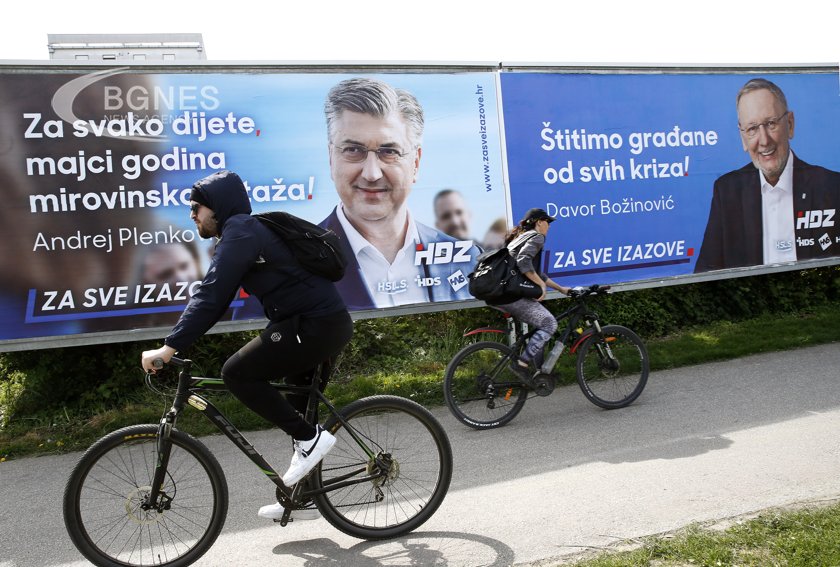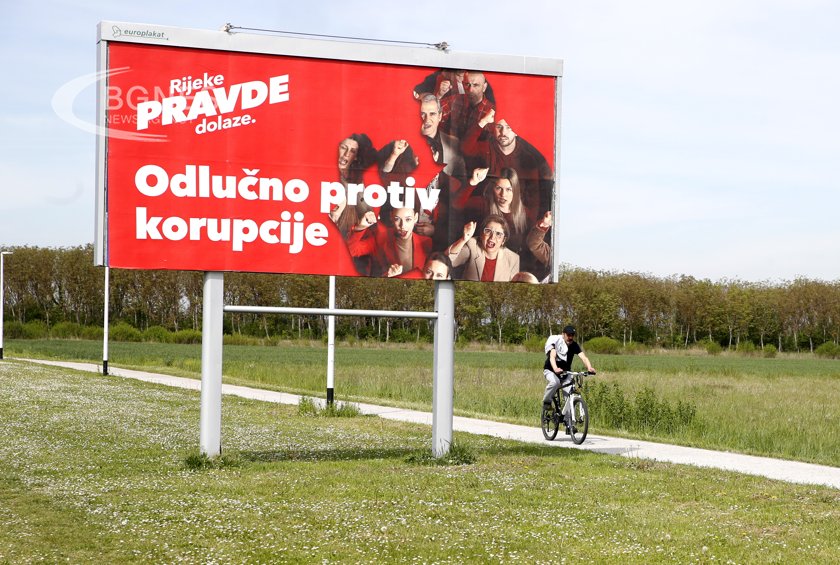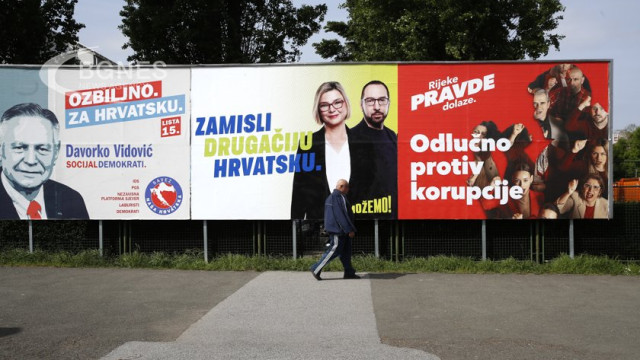Croats will elect the 151 MPs in the parliamentary elections today, April 17. The country's 6,500 polling stations will open at 07:00 local time (08:00 Bulgarian time) and close at 19:00 (20:00 Bulgarian time).
The Central Election Commission (CEC) announced that 3 733 283 people are eligible to vote.
The day is closed. Hospitals will only be responsible for emergencies, banks and schools will remain closed. Abroad, Croats will vote in 41 countries, 109 consular offices and embassies. Of the 151 MPs, 140 will be elected in ten constituencies in the country, three from Croatian citizens living abroad and eight from national minorities. The elections will be monitored by some 5 400 observers, about 3 100 less than in the July 2020 elections.
Polls show that the conservative Croatian Democratic Union (HDZ) party, in coalition with other smaller parties, has an advantage among citizens. The leader of the movement is the current prime minister, Andrej Plenković. He wants the trust of the citizens for a third consecutive mandate. With Plenkovic, Croatia entered the Schengen area and the Eurozone simultaneously in 2023. According to the prime minister, voting for his party means "stability, security and development", even though his two mandates were at the same time marred by corruption scandals that led to the replacement of several ministers.
The country's second strongest political formation, the Social Democratic Party (SPD), focuses precisely on "an uncompromising fight against corruption" along with "higher wages and pensions". The SPD has been in opposition for eight years and is a historic rival of the CDU.

The biggest surprise to emerge early in the election campaign was the announcement by incumbent President Zoran Milanović that he wanted to run for prime minister from the Social Democratic Party, which led the Rijeka Pravde coalition. Milanović was already prime minister of Croatia from 2011 to 2016 with the same political formation and has mostly anti-European and pro-Russian positions. He has repeatedly criticised Brussels' support for Ukraine following Russia's invasion of the country. However, the Constitutional Court has prevented the head of state from standing for parliamentary elections due to elements of "unconstitutionality" unless he resigns, which Milanovic has not asked to do. Therefore, the current head of state is not officially participating in the parliamentary elections and his name does not appear on the SPD's electoral list, but in almost daily declarations he states that after the elections he will form a new government "of national salvation" attacking the current CDU cabinet.
The heated and bitter confrontation between prime minister and president practically marked the entire election campaign, which lasted only 17 days.
Polls in the country give the CDU 60 seats in parliament, although the ruling party can probably count on the three seats reserved for Croatian citizens living abroad (usually close to the CDU) and eight from national minorities, traditionally pro-government, in addition.

According to the latest opinion polls, the SPD-led coalition will take around 44 seats. For both political parties, the results would still be insufficient to obtain a governing majority, for which 76 MPs are needed.
According to experts, the two parties that could decide who will govern Croatia in the next four years are the two most right-wing formations on the country's political spectrum. The "Patriotic Movement", a far-right political formation which according to the polls will win 15 seats, and the Catholic-conservative "Most" formation, to which the estimates assign nine seats.
In this context, President Milanović said he would try to unite all political forces, both on the left and on the right, to form a majority.
However, the Social Democrats will probably also be able to count on the support of the green and progressive formation "Mozemo!", led by the current mayor of Zagreb, Tomislav Tomašević.
In the last parliamentary elections on 5 July 2020, the CDU received 66 seats. Turnout was just over 46%. / BGNES







